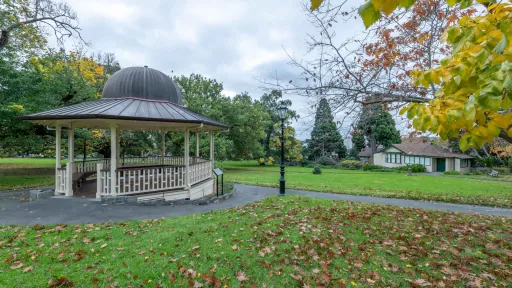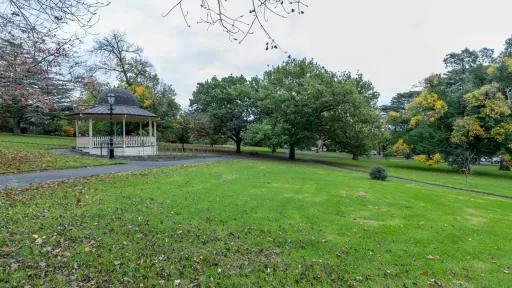
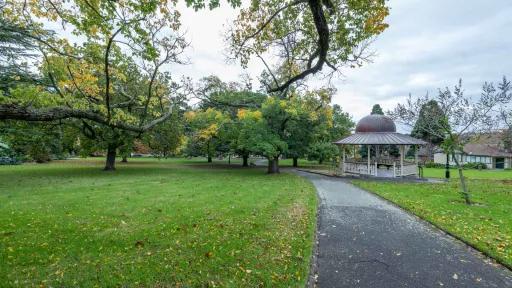
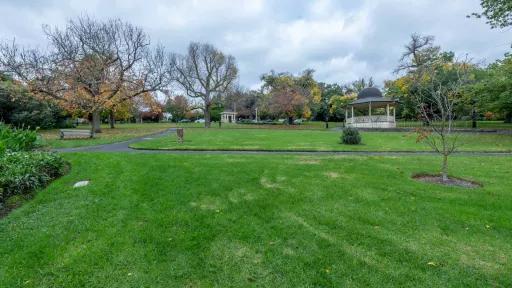
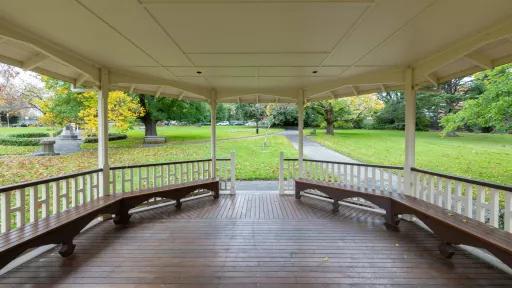
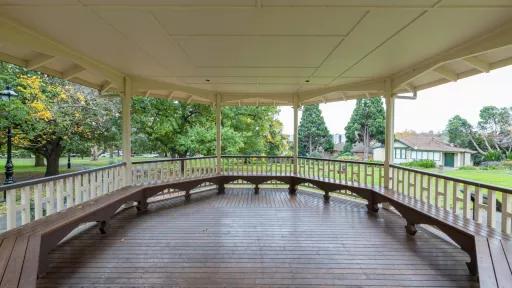
Suitable for picnics, social gatherings, weddings and other celebrations.
Surrey Gardens is heritage-listed and contains historical features.
The landscaped gardens provide a great backdrop to the stone cross (also known as a cenotaph), cannons and unusual artworks.
Address
88 Union Road, Surrey Hills 3127
There is limited parking on Norfolk Road and Union Road.
Union Station is the closest train station and a 6-minute walk (450 m away).
About the gardens
Surrey Gardens is a heritage listed park established in 1917.
William Guilfoyle, a well-known landscape architect, consulted on the garden design. He also designed the Royal Botanic Gardens Victoria.
Historical features
‘Brooks’ Babies’
Two cannons from around 1843 stand at the eastern edge of the site, flanking the 'Shrine.' They were originally at Canterbury Sports Ground and moved here in 1919.
Known as Brook's Babies, they were purchased in 1901 by Arthur 'Empire' Brooks to mark the end of the Boer War. Some believe they were used in the Crimean War.
Arthur Brooks and John Gray were among founding members of the revived and influential Surrey Hills Progress Association in 1906.
John Gray Memorial Rotunda
A band rotunda (bandstand), known as the John Gray Band Rotunda, originally stood in the Surrey Gardens. Completed in 1912, it was often used by The Surrey Hills Brass Band who performed concerts there from 1918.
In 1920, the rotunda was enclosed to accommodate the new Surrey Hills Baby Health Centre before a purpose-built baby health centre was added on the northern edge of the gardens in 1930.
The bandstand was eventually removed in 1973. A plaque honouring the former secretary of the Surrey Hills Progress Association, John Gray, is located where the original rotunda once stood.
The current rotunda was built in 2021.
The Dimmick Gateway
Built in 1950, the entrance to the garden’s honours William Dimmick, a former Councillor (1934-1947) and Mayor of Camberwell (1935-1936).
World War 1 memorials
Shrine War Memorial
Surrey Gardens is one of the first places in Australia to feature a First World War memorial
The shrine was erected in 1918 and includes an honour roll carved by local resident, J. K. Blogg.
As part of its 100th-anniversary restoration in 2018, additional soldier names were added to the shrine. These names were researched by local resident, Sandra Dexter.
Memorial Cross
A stone cross was built in the gardens in 1912 to honour the men of Surrey Hills and Mont Albert who were serving in World War I.
Gallipoli Oak tree (Quercus coccifera)
A significant tree planting ceremony was held at Surrey Gardens on ANZAC Day in 2015 to commemorate the 100th anniversary of World War I.
The ceremony was held by the Gallipoli and Beyond Group which consisted of members from Boroondara’s historical societies.
Cubs from the 4th Scout Group helped plant the tree.
The Gallipoli Oak is grown from acorns from oak trees at the Gallipoli site during WWI. The acorns were collected by several soldiers during the war and sent or brought back to Australia, where some were then planted.
The tree is now known as a symbol of remembrance.
